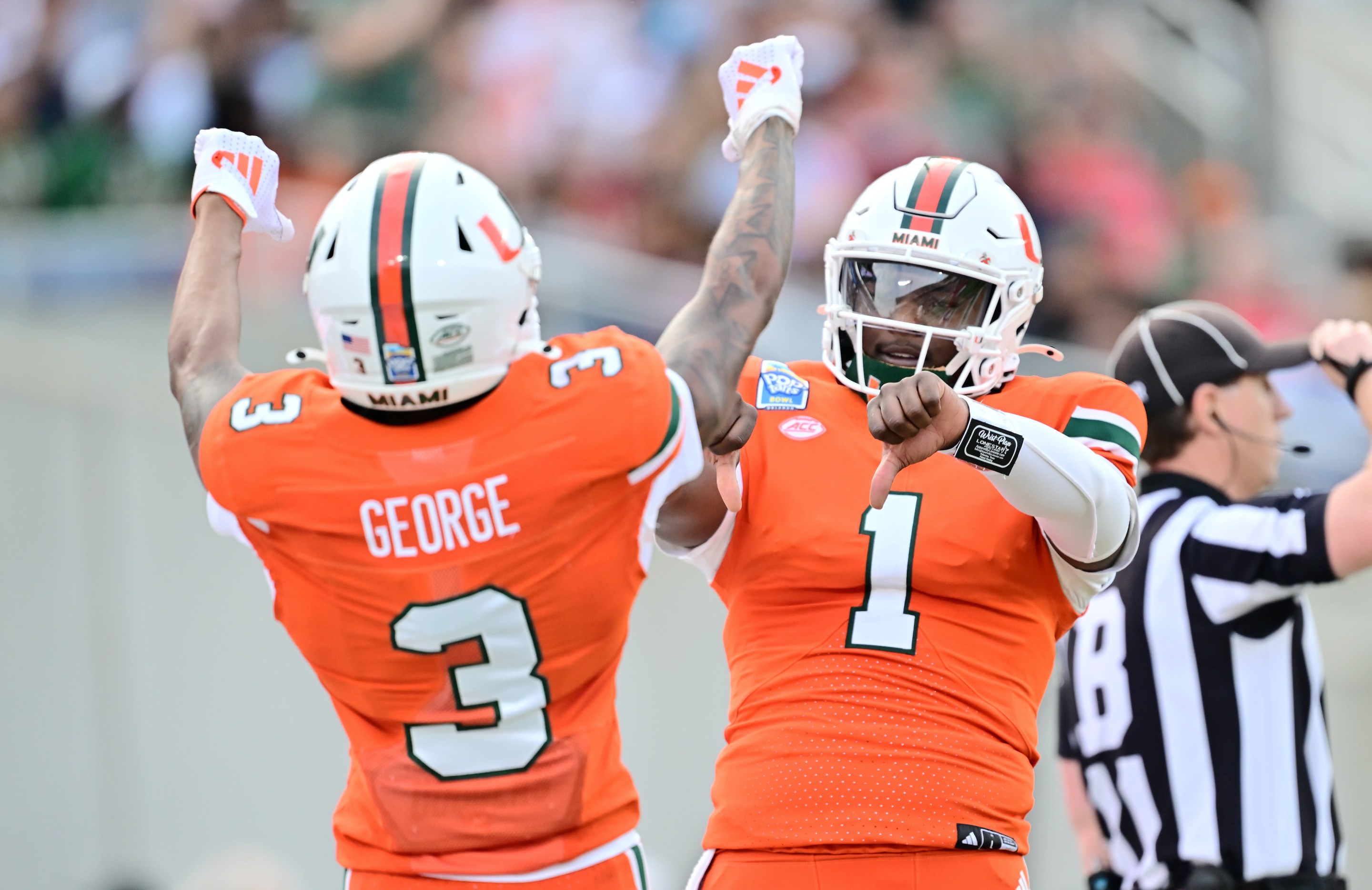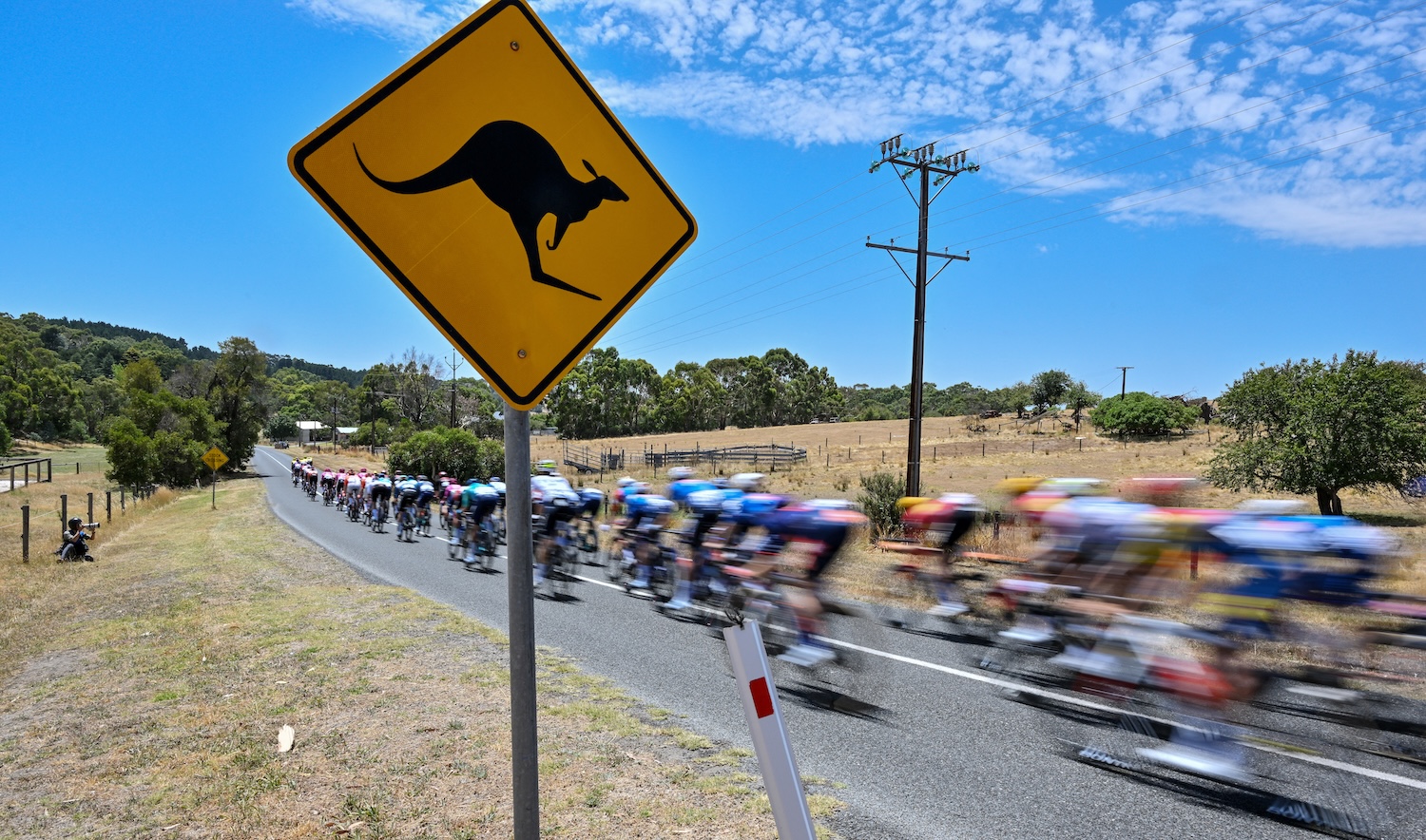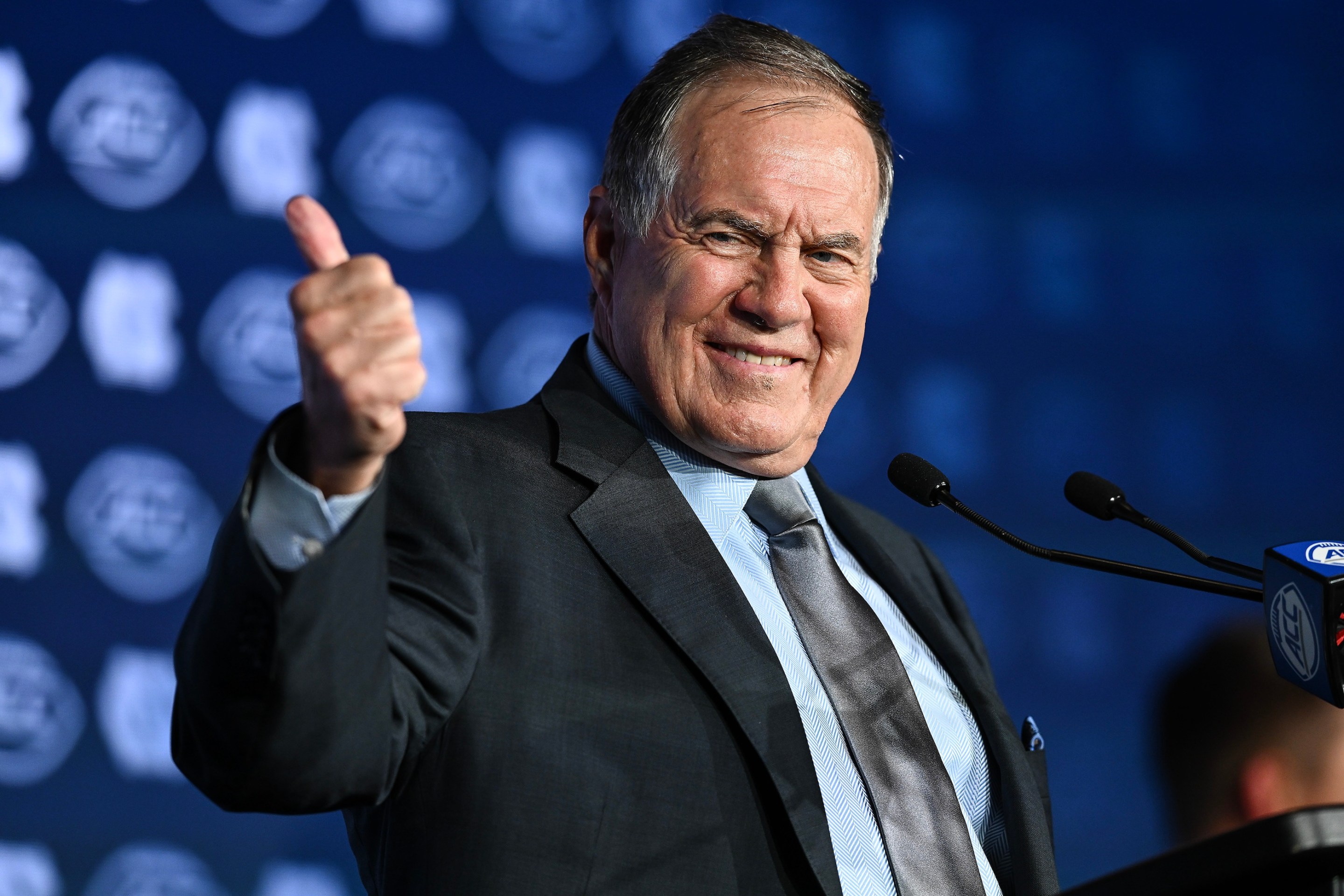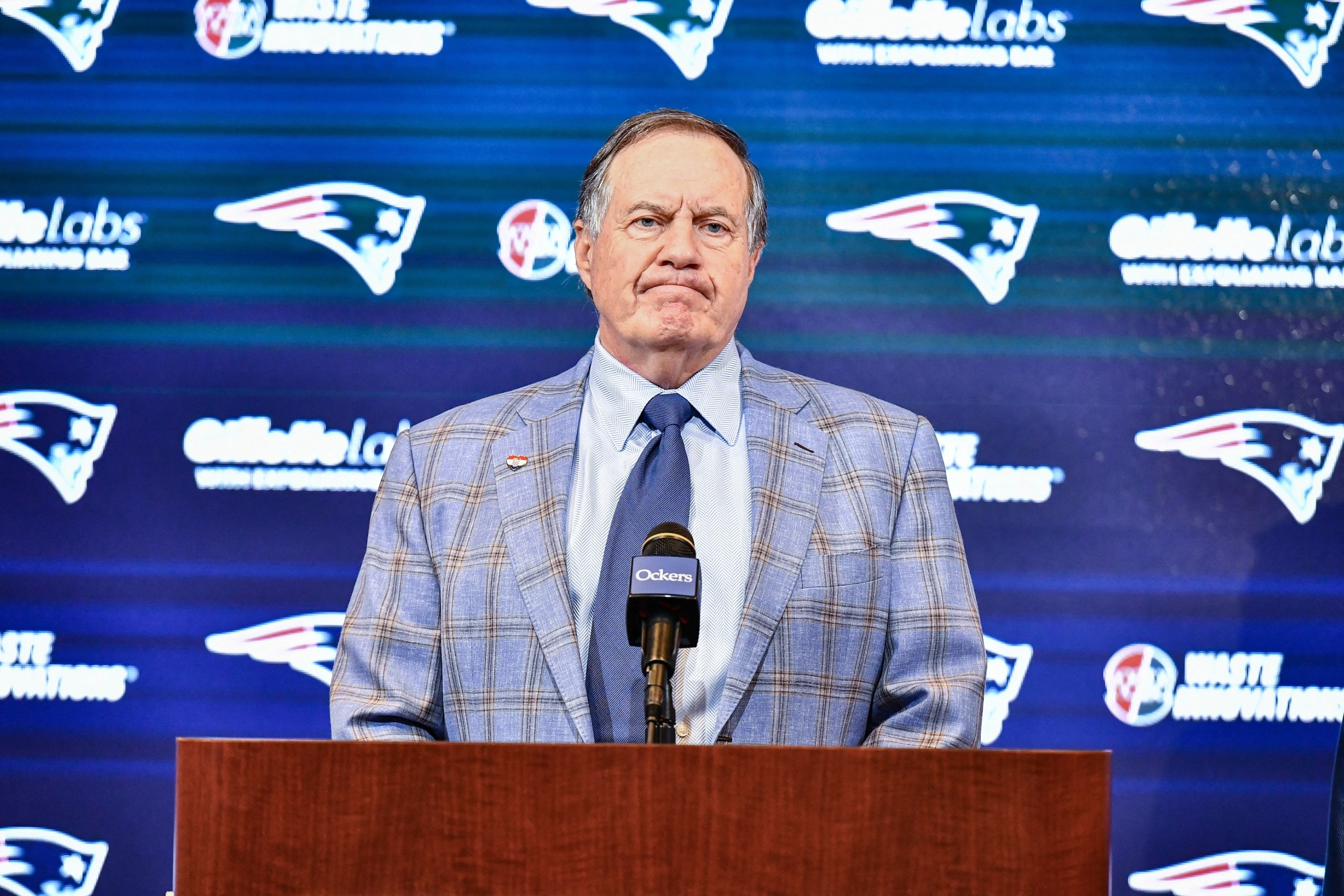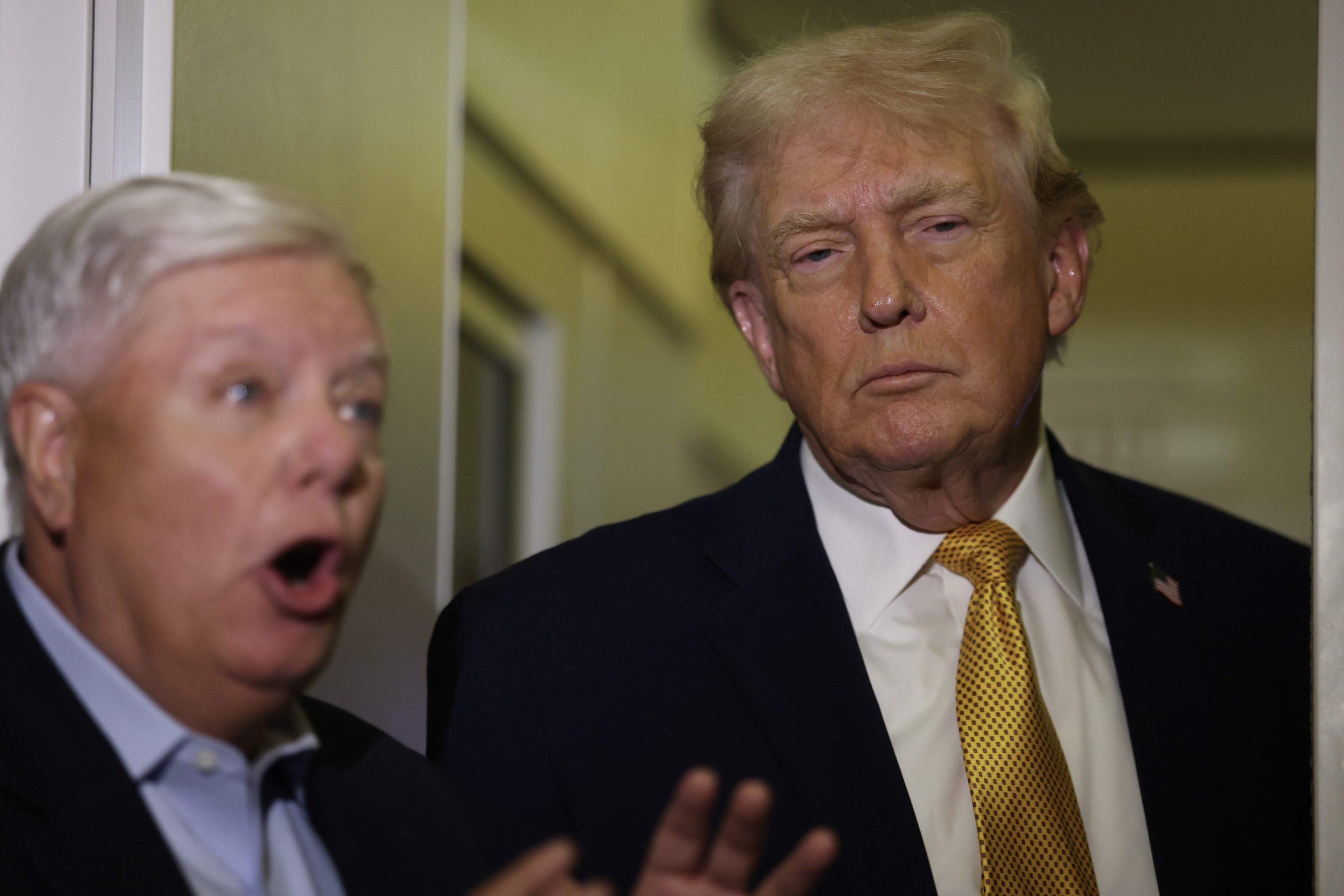Select portions of the college football world were outraged—big shock there—by Miami quarterback Cam Ward's decision to play only the first half of Saturday's bowl game sponsored by a toaster pastry. In this exhibition, the Hurricanes ended up losing to Iowa State, 42-41.
Ward, a projected first-round pick in next year's NFL draft, said earlier this month that he planned to play in Miami's bowl game. He just didn't specify for how long. Ward started the Toaster Pastry Bowl but left after one half, accomplishing his goal of breaking the Division I record for most touchdown passes in a career. He entered the day with 155, tied with Case Keenum, and got his 156th in the first quarter with a four-yard pass to Jacolby George to knot the game at 14-14. Ward threw for two more TDs in his limited reps and finished his college career with 158.
There might be some grumbling about how 71 of Ward's TD passes came in his two seasons at FCS program Incarnate Word, whereas Keenum scored all of his at the FBS level for Houston, but NCAA stats are already pretty janky anyway. Besides, there's a decent chance that Oregon quarterback Dillon Gabriel, currently sitting at 153 TD passes, will surpass both Keenum and Ward during the Ducks' run in the College Football Playoff, starting with the Jan. 1 quarterfinal against Ohio State. (Gabriel already broke Keenum's total touchdown record in November.)
After getting his name above Case Keenum's, Ward took a seat. He finished 12-of-19 for 190 yards and his three historic TD passes; Miami held a 31-28 lead at halftime. Emory Williams took over at QB in the second half, and was decidedly not as good as Ward. The Hurricanes' first possession of the third quarter was a run-heavy drive that ended with a touchdown, giving them a 10-point lead, but Iowa State wouldn't go away quietly. Down 41-35, the Cyclones put together a late fourth-quarter drive that concluded with quarterback Rocco Becht's one-yard sneak; the point after gave them a one-point lead that they would retain as the defense picked off Williams to seal the win.
After the loss, Miami head coach Mario Cristobal declined to elaborate on why Ward didn't play the whole game. Via The Athletic:
“All meetings with players and decisions like that — we make them in private and we keep them in private,” Cristobal said. “I’ll defer to not answering questions as it relates to that. But I know (Ward) played his best while he was in there, and certainly Emory (Williams) tried his best as well. We were rushing the ball really well.”
There wasn't really a need to keep it secret, because the reason felt pretty obvious: Cam Ward wanted to accomplish an individual record then preserve his health for the NFL. Wouldn't you feel like a sucker if your pro dreams ended in Orlando, lying on the turf in front of a few wiggling toaster-pastry mascots? Nevertheless, this business decision led to some of football's brightest minds weighing in:
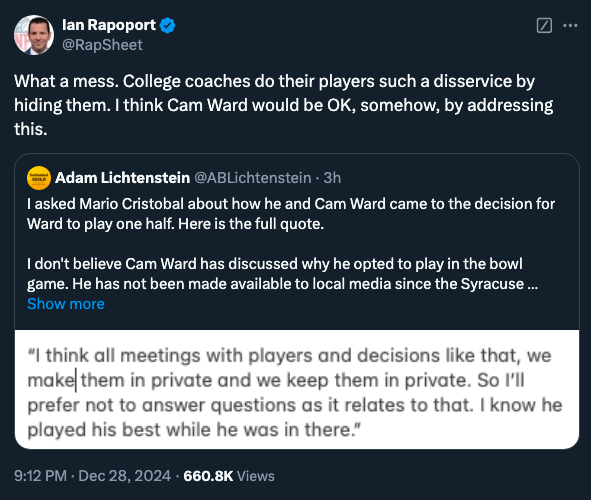
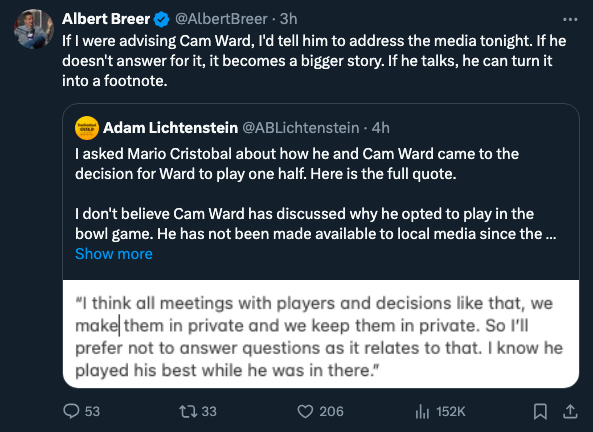
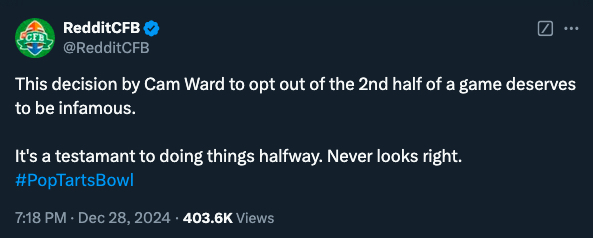
You get the gist. If you were to make a composite of the average person who believed that this was a stain on Cam Ward's college career, imagine a guy named Brampton Dork. He has a blue checkmark on his Twitter account and "God First" at the beginning of his bio. The rest of it lists the teams he roots for, and they all suck.
Those concerned about Ward's draft prospects could find a comparable case in Malik Nabers, the former LSU receiver now in the pros. Last season, Nabers played in the Bowl That Used To Be Sponsored By A Steakhouse But Is Now Sponsored By A Tampa-Based Cybersecurity Firm, then exited once he broke the school record for career receiving yards previously held by Josh Reed. The Tigers beat Wisconsin, 35-31; LSU head coach and notorious hardass Brian Kelly called Nabers's exit a coach's decision and was happy for his player. Nabers went on to have a record-breaking rookie season in the NFL after he was drafted sixth overall by the New York Giants, whose entire season has arguably been worthy of an opt-out.
Even with the facade of the student-athlete shattered in the age of NIL and the transfer portal, there remains a dwindling contingent of college football fans who acknowledge it's a business, then pretend that caveat indemnifies their naiveté when they complain about players making financial decisions the way the rest of the sport does. This idealized notion can be found in places outside of college football, too, but it's especially hilarious in this context. Ward came to Miami as a transfer from Washington State. He set single-season records for the Hurricanes as a passer, then became a Heisman finalist. He did practically everything the program could have asked for within one year, but to hear some people tell it, he gave up when it mattered most: for a bowl game that exists purely for financial reasons, played on a field with sprinkled sidelines, and followed by a ritual toaster-pastry feast afterward. NFL scouts are dumb, but they're not that dumb.
